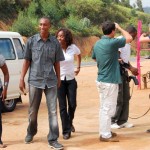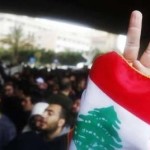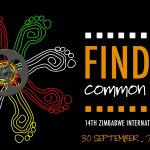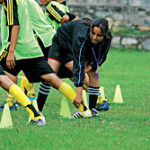Who are you?

The audience at the awards ceremony for the “Shoot Your Identity” short film competition.
by Christopher White
We’ve all been there. You’re out having a drink and you meet someone and they ask you what you do. You tell them and turn the question back on them. A conversation progresses based on the assumption that this fact says something about your character, who you are, where your passion lies. Sometimes you find that, by the end of the conversation, the other person still doesn’t know what really makes you tick. Ask someone point-blank who they are and chances are they’ll freeze. It takes a lifetime to form character. What do you lead with? Your job? Your blog? Your education? Is this you?
Here’s another puzzler: How do you get that inner search on film?
“Shoot Your Identity”
Identity has never been a side project at Search for Common Ground. The Lebanese iteration of our award-winning, multi-national television program The Team has dealt heavily with the concept of identity in a country with many intersecting ethnic, linguistic, cultural, and religious lines. But an innovative social media strategy surrounding The Team – Lebanon has given rise to a unique series of films that revolve around the main theme of identity. These documentaries are illuminating how the people of Lebanon are confronting what it means to be Lebanese.

The cast of The Team – Lebanon.
The Team – Lebanon (funded by the Rockwell Foundation) gained support through a UNDP/EU-funded side project aimed at developing an alternative social media strategy that would strengthen the impact and outreach of the program. In addition to short “extras” shared on the show’s website revealing the stories that inspired the hit series, SFCG has succeeded in providing our audience with a platform to discuss the weighty issues The Team has broached.
To take advantage of this two-way medium, we started a contest called “Shoot Your Identity” soliciting the country’s youth for short videos about themselves that would tell us and the audience of The Team what it means to be Lebanese and what identity means for them.

Ahmad Trabolsi, right, is winner of the 1st Jury choice award.
I spoke with the folks at SFCG – Lebanon about the project and they told me that, while the submissions were very diverse, there was a common thread throughout. Many of the youths who participated affirmed their pride in being Lebanese while also “craving something better for their country.” This contest was meant to help bring a critical lens to a concept which is all too often viewed as static and tied to the contingent facts of birth.
But how do you prepare someone to get their identity down on tape?
SFCG – Lebanon ran workshops for young people to help them address the issue in their own way. While peacebuilding in Lebanon tends to be very Beirut – centric, this provided us with the opportunity to take our work into the periphery. In addition to those in Beirut, youths from other parts of the country that may not have the same opportunities as their urban counterparts were given access to cameras and encouraged to participate in capacity-building exercises.
Facilitators began each session by screening an episode of The Team – Lebanon and then holding a discussion concerning how issues of identity were addressed during the program. Afterwards, the participants discussed methods that could be used to convey these complex issues on camera and were given technical training on the filmmaking process.

Jana Yassine won the 2nd Jury choice award. A friend received the award on her behalf.
Submissions were then shared on Facebook and the program’s website so that people could vote on the videos they liked most. With the tremendous spike in traffic to these pages, the participants were gratified to discover there was so much interest in what they had to say. By giving voice to the aspirations and desires of the country’s youth, this contest made peacebuilding work in Lebanon a more dynamic process. As a member of the SFCG – Lebanon team told me, “We don’t want the TV show to be a passive means of peacebuilding, we want it to be an interactive tool.”
During a ceremony for the competition held earlier this month at Metro Al Madeena, Hamra, there were two awards given by a jury based on creativity, technical aspects, and method. A third award was given on the basis of popularity. This encouraged the contestants to get the word out on social media themselves while also increasing public involvement in a heady discussion. The first jury award went to Ahmad Trabolsi, the second went to Jana Yassine, and the award for most popular video went to Mohammad Yatim.
You can watch these short films subtitled in English here.
My Identity

Country Director, SFCG-Lebanon Emily Jacquard, left, and Mohammad Yatim, winner of the award for most popular video on Facebook.
In addition to these short films and The Team – Lebanon, Common Ground Productions has also produced a soon-to-be-released documentary called My Identity. The 30-minute film, which follows a man with a Muslim father and a Christian mother, explores the universally relatable dilemma of being confused about one’s identity. The intent behind the film was to flesh out how identity is fluid and not “given.” We wanted to bring together and condense all the messages from The Team, the short film contest, and our other support activities.
In Lebanon, one’s confessional affiliation is inscribed on identification papers and comes from one’s father. We wanted to explore with the audience how this official identity isn’t written in stone. SFCG wants to drive home the idea that no one’s destiny is given at birth; it is built gradually over a lifetime. As a member of the SFCG-Lebanon team told me
It’s not given to you. It’s not something that is given at birth and you can’t change it and it defines who you are. It’s the people you’re around, the choices you make, the environment you’re from. It’s the sum of the experiences you have in life and you don’t have to fit into any predetermined category that has been decided by society. You can find your own identity.
Christopher White is a freelance writer focusing on international politics, philosophy, and the arts. Specializing in the study of ideology and global governance, he received his M.A. in Ethics, Peace, and Global Affairs at American University. You can follow him on Twitter @bad_infinity_








